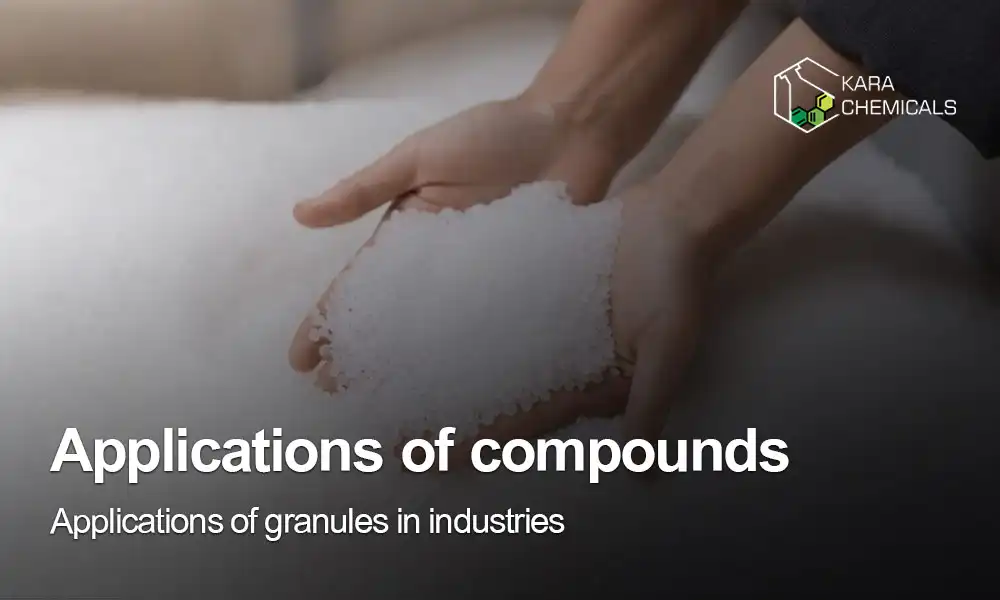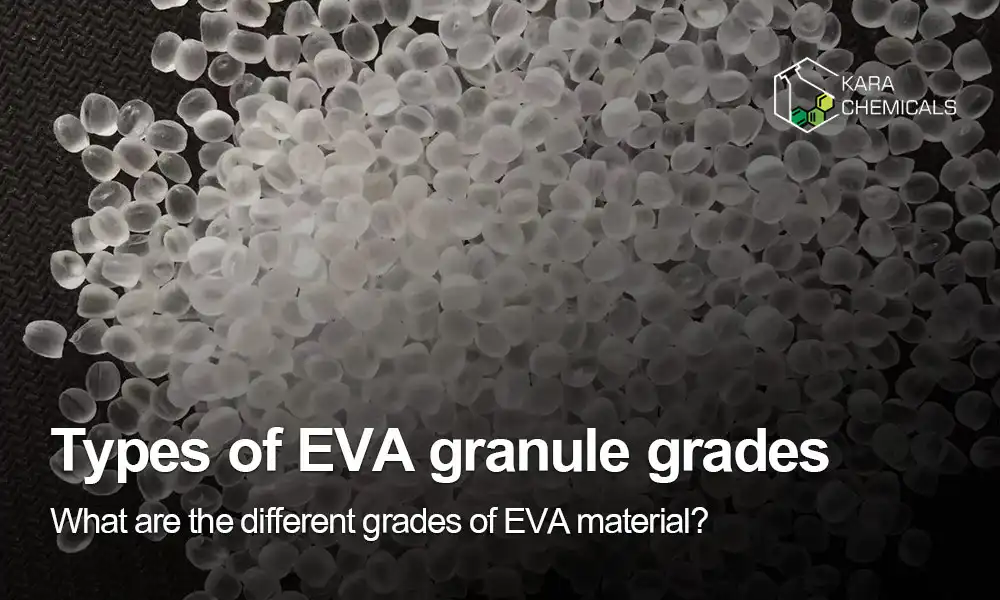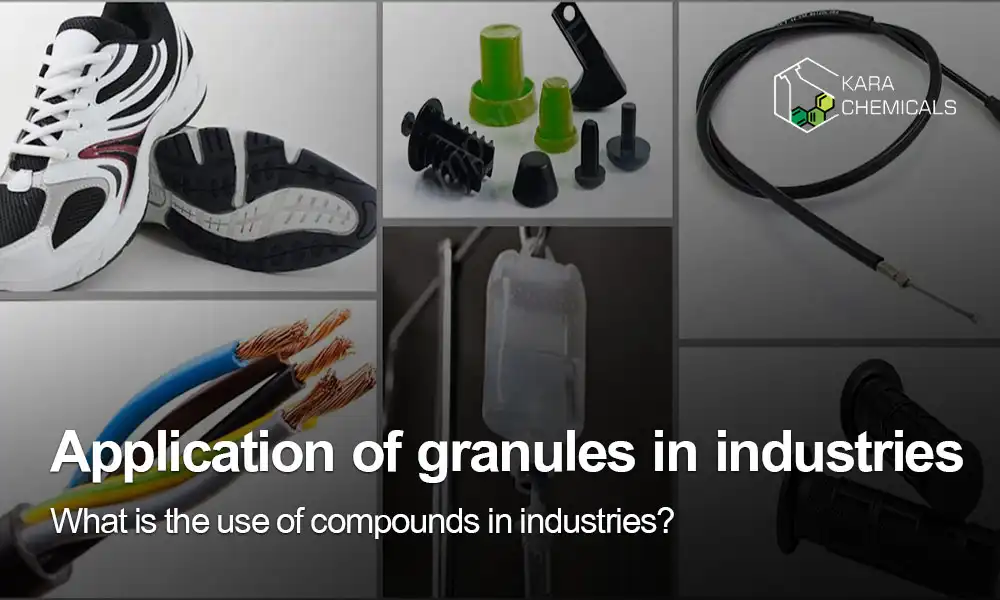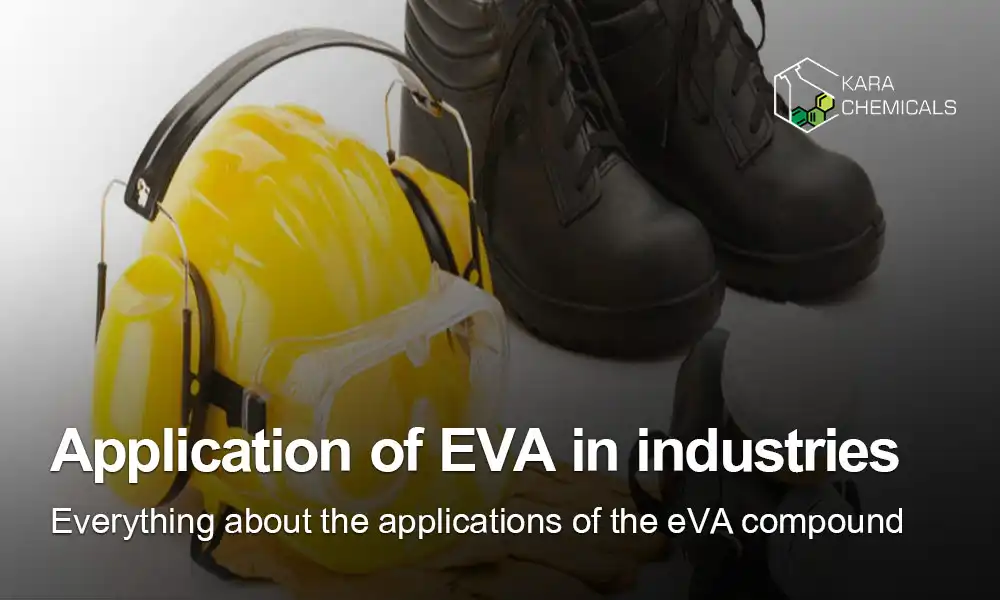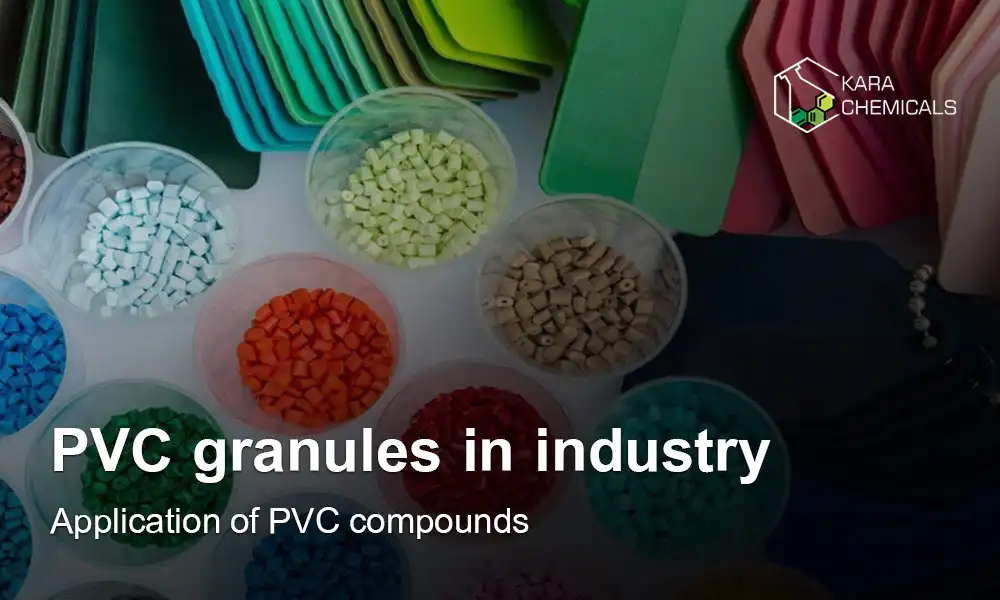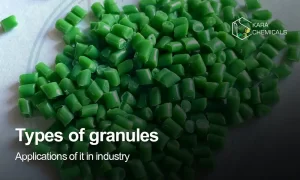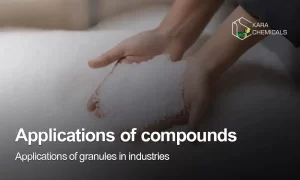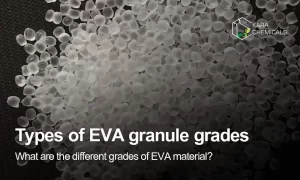The world around us is surrounded by plastic. Many goods and objects that we use on a daily basis, from computers to refrigerators, are all made of plastic. However, not all plastics are made of the same materials, they can use different plastic materials and Composition, which are called compounds, each of which has unique properties. Compounds are used to improve the properties of a product. Basically, a compound is a homogeneous mixture of different materials that are combined to create a new material with desirable properties .Compounds can be composed of two or more substances. In general, compounds consist of three main components, which include compatibility agent, polymeric base and other additives. When we add additives such as softeners, fillers, stabilizers, etc. to the polymer base, we turn it into a compound. Basically, these additives are added to improve the properties of the polymer, and the important thing is that there must be compatibility between the product and the compound. If they are not compatible with each other, they cannot be distributed continuously and uniformly in polymer materials, and as a result, they reduce their quality. There are different types of compounds and they are used in a wide range in the industry, the application of each one can be different according to the type and characteristics of each. In this article, we are going to check the applications of compounds in industries and get acquainted with its types. Follow us to the end of the article for more information.
Types of compounds
Applications of polyethylene compounds in industries
According to the application of compounds in industries, polyethylene compound or PE is the most common compound in industries, which is used in a wide range, and it is one of the most widely used plastics, which has taken the first place. This compound can be produced in different densities, each of which has unique properties, and according to the properties of each, they are used in various industries. The four common densities of polyethylene include the following:
- low density polyethylene (LDPE): This density of polyethylene has low tensile strength but has good flexibility and is used to make products such as packaging films, garbage bags, transparent food containers, disposable packaging, squeeze bottles, toys, etc.
- Medium Density Polyethylene (MDPE): This density of polyethylene has high impact resistance properties, which by having more polymer chains and thus higher density, is commonly found in gas pipes and fittings, shrink film, carrier bags, screw packages and more.
- High Density Polyethylene (HDPE): This type of polyethylene has good tensile strength and is moderately stiff, but it is stiffer than both LDPE and MDPE. Its applications include water and sewage pipes, folding chairs, plastic bottles, snowboards, boats, etc.
- Ultra high molecular weight polyethylene (UHMWPE): This type of PP compound is used in a variety of applications due to its properties such as extreme toughness and excellent cutting, abrasion and chemical resistance. Among its applications, we can mention the automotive industry, gears, bearings, prostheses, etc.
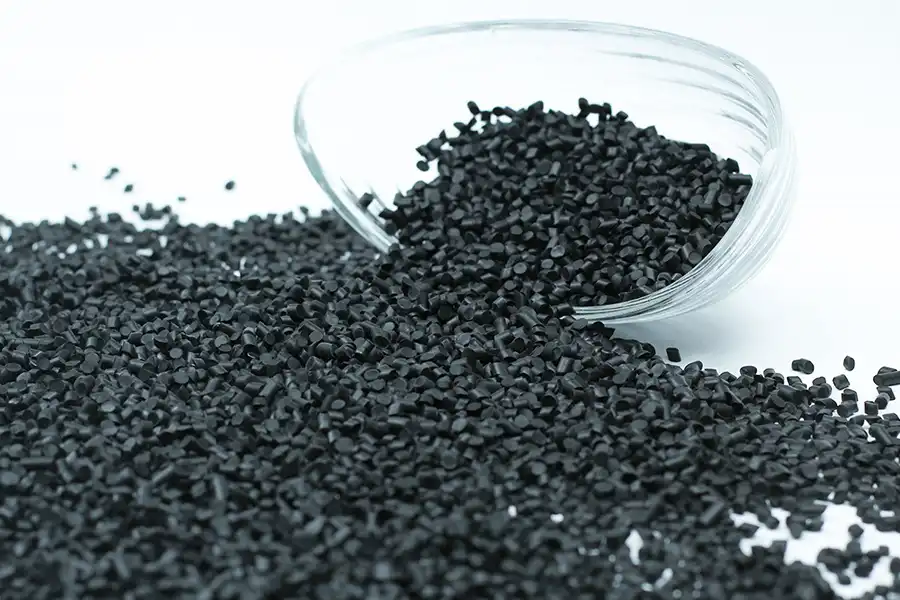
Applications of Polypropylene compounds in industries
This type of compound is a thermoplastic polymer that is an important raw material for many different manufacturing industries such as packaging, building materials, home appliances, etc. Polypropylene compound or PP consists of a combination of polypropylene resin and additives such as fillers, pigments, stabilizers and other additives. Therefore, it is considered to be one of the most widely used compounds, which has taken the second place among plastics.
Many industries, including the automotive industry, are the largest consumers of polypropylene engineering plastics due to its properties such as high impact resistance, electrical insulation, high transparency, color acceptability and flexibility. Other uses of polypropylene compounds include making household appliances, car and motorcycle parts, fuel tank caps, and electrical and electronic appliances.
Applications of polyvinyl chloride compounds in industries
Polyvinyl chloride compound or PVC is formed from the polymerization of vinyl chloride monomer, which due to its many properties such as high resistance to sunlight, high resistance to impact and wear, flexibility, lightness and durability, biocompatibility, etc. in various industries. A wide range is used. PVC compounds are produced in two types, hard and flexible, which are used in various industries, including pipe and fittings industry, medicine, automobile, shoes and slipper industry, sports equipment, electrical industry, toys, etc., according to the properties of each.
Applications of polycarbonate compounds in industries
Polycarbonate compound or PC is a synthetic resin that has good rigidity, transparency and stability. This type of compound is easily molded and used in a wide range of products. Among its most important applications, we can mention the automotive industry, medical technology, electrical and electronic industry, aircraft industry, bulletproof equipment, etc.
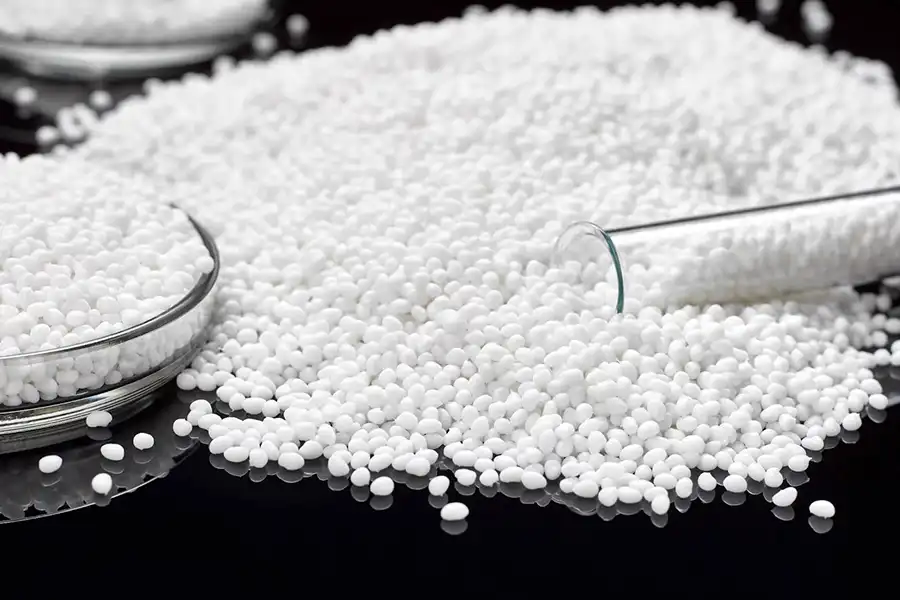
Applications of polystyrene compounds in industries
Polystyrene compound or PS is a synthetic polymer that consists of styrene aromatic hydrocarbon monomers, which exist in three types: normal, resistant and expansion. The structure of polystyrene is rigid and transparent, but it can be colored with pigment additives. This type of compound has limitations such as fragility, poor breathability and very low chemical resistance and is not very biodegradable. Its uses include packaging, plastic bottles, disposable containers, CD and DVD discs, etc.
Applications of ethylene vinyl acetate compounds in industries
Ethylene vinyl acetate compound or EVA is a copolymer of ethylene and vinyl acetate, which has properties like rubber and is very soft and flexible. This type of compound exists in weights of 10 to 50% in different groups, each of which has unique properties and is used in a wide range in different fields. Among the most important properties of EVA compound, high flexibility, lightness, non-toxicity, high resistance to UV rays and high impact resistance can be mentioned. Therefore, with its many properties, it is used in industries such as cars, toys, sports equipment, medicine, shoes and clothes, etc.
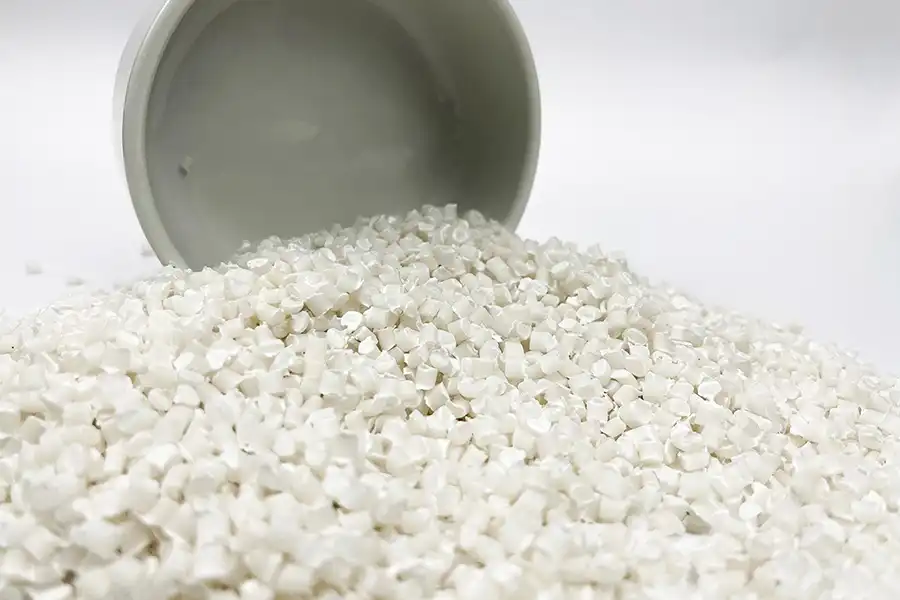
The effect of applications of compounds in industries
By now you must have realized the importance of granules in the industry. In fact, it is one of the most useful raw materials used in granule production industries. This widely used material has a polymer structure that is unique and is used in the preparation of all kinds of plastic goods. These granules are in the form of small pellets that are used in the production process of various products. According to the use of compounds in industries, the most important point in industries is the use of appropriate granules. Because the selected granule significantly affects the quality of the final product. Therefore, choosing the right type of granule for each industry depends on various factors such as product type, desired properties, processing method and its price. Among the things that affect the type of granule used in industries, the following can be mentioned:
- Raw materials: Granules are made from various raw materials such as polyethylene, polypropylene, polyvinyl chloride, polystyrene, polycarbonate and ethylene vinyl acetate. Each of these materials have their own properties and applications and are designed for use in different industries.
- Technical specifications: Granules are produced with various technical specifications such as density, melting index, tensile strength and impact resistance. It is very important to choose a granule with the right technical specifications for the intended application. And each of the granules have different technical specifications, which are different depending on the type and its application in various industries.
- Processing method: Granules are processed by various methods such as injection, extrusion, and compression molding. The type of granule should be compatible with the desired processing method. Considering the application of granule in industries, therefore, the type of granule chosen has a great impact on its use in various industries.
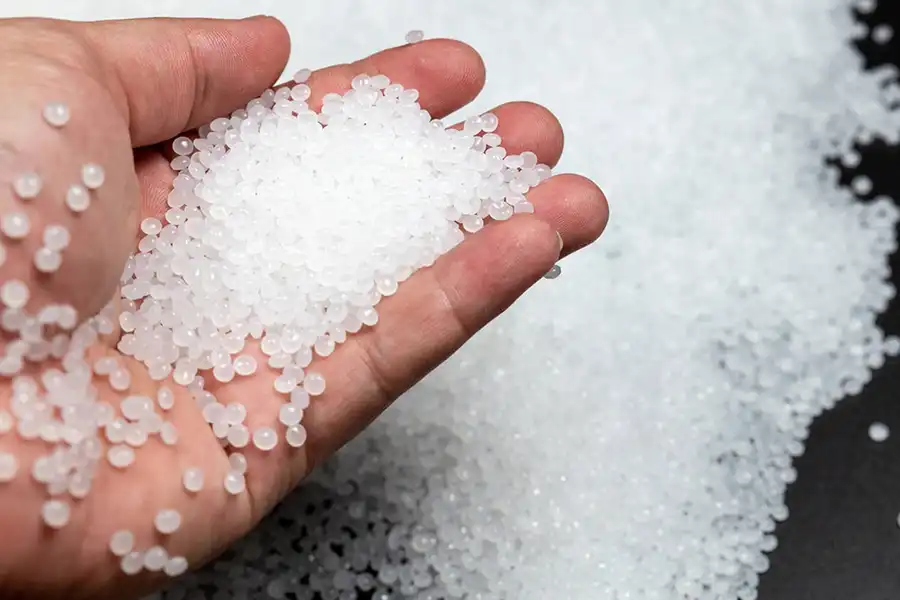
Read more: Properties of the granule
The best producer of granules
Many countries are in the field of producing all kinds of granules, and due to the increasing use of this widely used material, a bright future is waiting for this product. The Asian region is by far the largest producer of granules in the world, and many countries such as China, Korea, Japan, and Vietnam produce all kinds of granules. Considering the applications of compounds in industries, this material is also produced in Iran and even exported to foreign countries. Among the best producers of granules, we can mention Karachemicals. This collection is one of the largest production collections of PVC granules and EVA granules, which, in addition to meeting the needs of the domestic market, has the ability to export to different countries in bulk. To consult and buy different types of granules that suit your product needs, you can consult with experts through the site of this collection and get the granules you want with excellent quality and reasonable price.
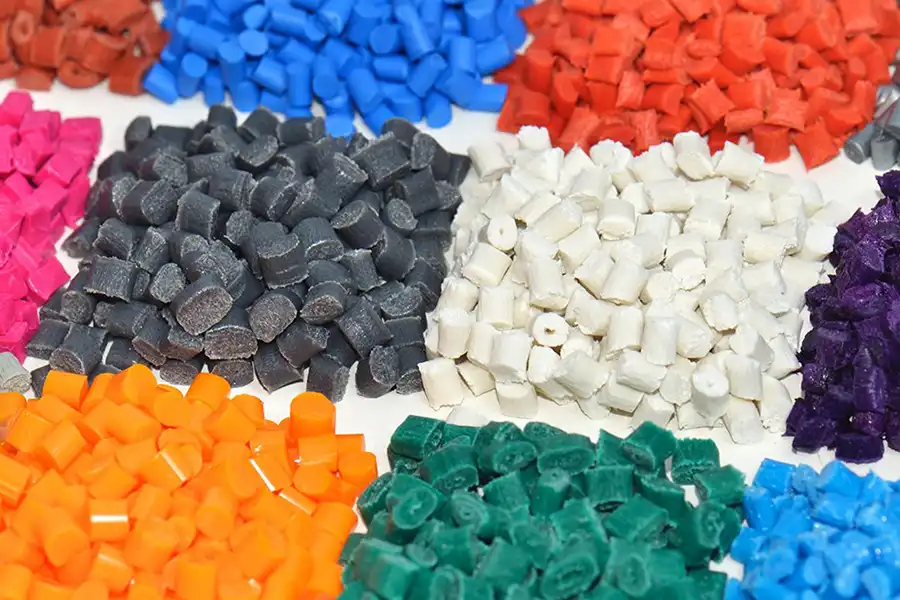
Which countries import granules?
Due to the application of compounds in industries, many countries import granules due to the lack of quality raw materials and the lack of proper infrastructure. Since the main derivatives of these granules are oil, many countries import the granules needed to produce their consumer goods from other countries due to the lack of sufficient access to this substance. Another important reason to import granules is its quality.
Although some countries are producers, their granule production is not of good quality. Therefore, this item has a significant impact on the quality of the final product, so manufacturers prefer to import granules with better quality and reasonable price. Among the world’s largest importers, India ranks first in granule imports. Other importing countries include China, the United States, Germany, Belgium, Italy, Turkey, Mexico, France, Vietnam, etc.
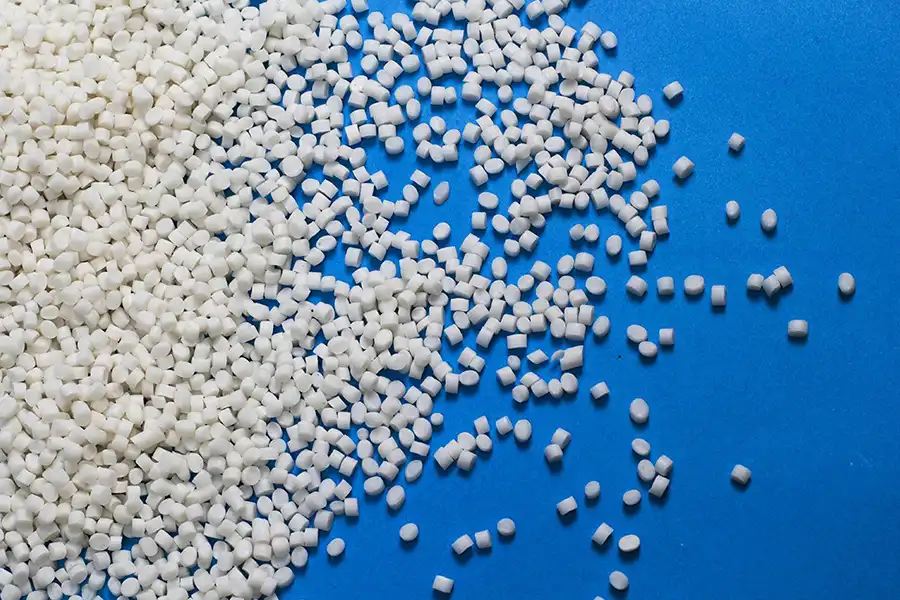
Read more: What is plasticizer?
Today, plastic products are one of the most important parts of daily production and have found their place among industries. The application of compounds in industries in the production of various types of plastic products is very diverse, and all types of compounds are used in a wide range in the production of various types of products. These compounds have many properties and each of them is used for specific applications according to its mechanical and chemical properties. Many manufacturers produce different types of polymer products.
Meanwhile, Karachemicals is one of the top producers in the field of compound production. This group produces EVA and PVC compounds, which, in addition to having a special position in the domestic market, is also trying to gain a high position in selling its quality products in foreign markets. Therefore, in addition to domestic supply, it has the ability to export EVA granules and PVC granules. For more information about the purchase and price of various compounds, you can contact the experts of this collection through the Karachemicals site.
Polyethylene compound has the first rank among other compounds. Because it has many properties that can be used in a wide range of products and it is possible to customize it.
Compounds, in addition to their many advantages and properties, also have challenges such as compatibility factor, processing problems and environmental concerns. Therefore, expert personnel and specialized equipment should be used during production.

